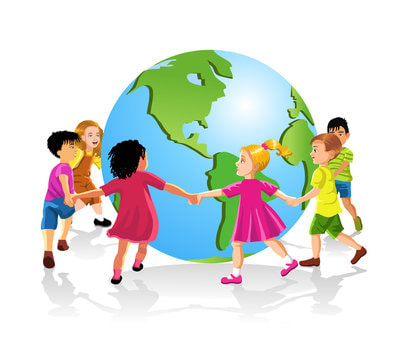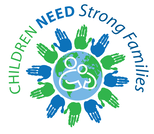|
Today, February 20, 2024, is World Day of Social Justice. Formerly called "Social Justice Equality Day," it's an internationally recognized day to promote social justice efforts that tackle issues such as poverty, exclusion, gender inequality, unemployment, human rights, childhood poverty and social protections.
Many people in the world suffer because of issues of social justice, but it's difficult to think of a group of people more powerless than children living without the love and protection of safe and caring families, and the networks of support that surround them, such as extended family, neighbors, communities, churches and access to social services. Orphaned children and those otherwise living outside of the care of family have no power, no voice, and no agency over their own lives. Even in institutional settings, children can suffer an appalling lack of access to their own rights. The UN Convention on the Rights of the Child clearly identifies some of these rights: the right to "...remain in or return to the care of his/her parents, or when appropriate, other close families members," the right to "...freedom of thought, conscience and religion," the right to "...express his/her own views freely in all matters affecting them, and the right to protection... from all forms of physical and mental violence, injury or abuse, neglect or negligent treatment, maltreatment or exploitation." Micah 7:8 teaches us that what God requires of us is "to act justly, and to love mercy, and to walk humbly with your God." Note that it doesn't say that this is what God wants from us. No - it's not a suggestion, or even a recommendation - it's a requirement. In a world full of division and warfare and violence, it's difficult to figure out how to act justly, love mercy and walk humbly all at the same time, even just for ourselves. But if we're also engaged in the work of child protection and ensuring social justice for children, what does that justice look like, for them? If we're the champions of the least and the lost - how can we find justice for them? Mick Pease and Phillip Williams, co-authors of Children Belong in Families, have said "what children really need is someone just for them....they want to belong to someone, not to something." In 2019, after the CRC had completed its transition to family-based care and reintegrated all of the children back into their families, I visited one family in their two-room mud house, and asked the older daughter how things were different for her at home with her dad, than in the orphanage. She thought for several long minutes, and then she said, "when I wake up in the morning, he's here. We make breakfast and pray together. When I come home from school, he's here. He asks me about my day. He's here." His daily presence in her life, mattered more to her than anything else. I think for a child, justice looks like love, care, protection, identity; the right and ability to know who you are and to whom you belong.
0 Comments
Thirty-five year old Isatu lives in Sembehun village, nine miles from Bo. Isatu married to a young gentleman from the same village. For 13 years, Isatu was unable to give birth to a child. In the African tradition, if a woman cannot deliver a baby for her husband after 4 years of marriage she is considered barren and a witch. The people of the village began to mock and shun her, and with his family's encouragement, her husband married another lady, making Isatu the second and lower wife.
According to African tradition, the number of children a couple has is a reflection of the strength and wealth of the father. Not giving birth to children is perceived as a weakness in the man, and African society looks down on men with no children. Almost as soon as Isatu's ex-husband remarried, his new wife became pregnant and gave birth to a baby boy. “My mate's baby boy brought joy to the entire family including myself," said Isatu. Male children are preferred, as they are seen as carrying forward the familie's succession. After the birth, however, Isatu became completely isolated and was not permitted to play or touch her mate's child because she was considered a witch. Isatu was later disallowed from cooking because they believed her curse would poison the family. “I continued to pray to my forefathers to deliver me a child." Mercy Hospital conducts outreach in Sembehun village, but Isatu never understood the benefits of this outreach for women and children. She thought initially the outreach was for physically sick people. “I was referred by a family friend to register with Mercy Hospital for my barrenness," she shared. Fortunately, she was enrolled during one of the outreach missions in the village, and was registered as a patient at Mercy Hospital and put on fertility pills, and other free medical supplies every month. In addition, she received free medical and nutrition supplies each month, and free training on maternal health and childbirth. In September 2022, she became pregnant and gave birth to a bouncing baby boy. Isatu and her son continue to receive nutritional and medical support from Mercy. “Mercy Hospital changed my life and my status completely - not only within my household but in my village too. I am no longer called a witch”. She is allowed to touch and play with other children in the family. Her son is currently one year and three months old, and doing well. “My child is now the jewelry of my husband,” according to Isatu. The child was named Thewor, a Mende word that means, "they said I will not give birth." |
Follow us on social media
Archive
July 2024
Click the button to read heartfelt tributes to a beloved Bishop, co- founder of our mission!
Post
|
Helping Children Worldwide is a 501 (c) 3 nonprofit organization | 703-793-9521 | [email protected]
©2017 - 2021 Helping Children Worldwide
All donations in the United States are tax-deductible in full or part. | Donor and Privacy Policy
©2017 - 2021 Helping Children Worldwide
All donations in the United States are tax-deductible in full or part. | Donor and Privacy Policy







